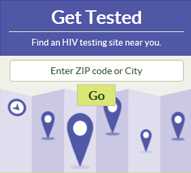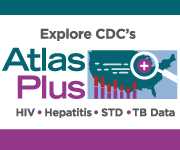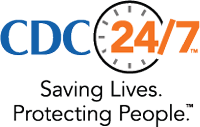National Transgender HIV Testing Day
Dear Colleague,
April 17, 2017
Tomorrow the Centers for Disease Control and Prevention (CDC) will join our partners in recognizing National Transgender HIV Testing Day, sponsored by the Center of Excellence for Transgender Health at the University of California, San Francisco. This is a day to promote HIV testing, prevention, and treatment for transgender people and encourage local testing events that serve transgender communities.
Ensuring that HIV testing, prevention, and treatment initiatives reach transgender people is important, as more than 2,300 HIV infections were diagnosed among transgender people from 2009 to 2014. Of these, 52% were among blacks/African Americans, and 44% were among people living in the South. In particular, transgender women are at high risk for HIV, accounting for 84% of these diagnoses. An estimated 22% of transgender women in the United States are living with HIV, and the percentage is much higher (an estimated 56%) among black/African American transgender women. Though data are limited, transgender men who have sex with men may also be at high risk for HIV.
Cultural and psychosocial factors such as social isolation; violence; stress; depression; and inadequate employment, housing, or insurance may create barriers that keep transgender people from accessing HIV services. A lack of understanding within health care systems about transgender health issues may also prevent transgender people from getting care that meets their needs. Implementing comprehensive HIV prevention strategies that address these factors and increasing access to supportive HIV services are essential to reducing the impact of HIV among transgender people.
In partnership with many of you, CDC is working to reduce new HIV infections and eliminate HIV-related disparities among transgender people. Some of our activities include:
- Capacity building assistance to implement HIV prevention strategies and strengthen the infrastructure of health departments, community-based organizations, and clinics that serve transgender people.
- Research to evaluate program efficacy and assess the needs of providers and transgender patients.
- Support to health departments and community-based organizations that provide services to transgender people to reduce risk of HIV infection.
- Act Against AIDS communication materials to reach transgender people. All Act Against AIDS consumer-focused campaigns, including Doing It, Start Talking. Stop HIV., and HIV Treatment Works, now include resources featuring transgender people.
Tomorrow events around the country will encourage transgender people to get tested for HIV and take steps to keep themselves and their partners healthy. With HIV prevention partners and transgender communities working together, we can build on the momentum of this day to reduce HIV infections among transgender people. Thank you for joining us to recognize this important day of action.
Sincerely,
/Jonathan Mermin/
Jonathan H. Mermin, M.D., MPH
RADM and Assistant Surgeon General, USPHS
Director
National Center for HIV/AIDS, Viral Hepatitis, STD, and TB Prevention
Centers for Disease Control and Prevention
www.cdc.gov/nchhstp
/Eugene McCray/
Eugene McCray, MD
Director
Division of HIV/AIDS Prevention
National Center for HIV/AIDS, Viral Hepatitis, STD, and TB Prevention
Centers for Disease Control and Prevention
www.cdc.gov/hiv
- Page last reviewed: April 18, 2017
- Page last updated: April 18, 2017
- Content source:


 ShareCompartir
ShareCompartir


